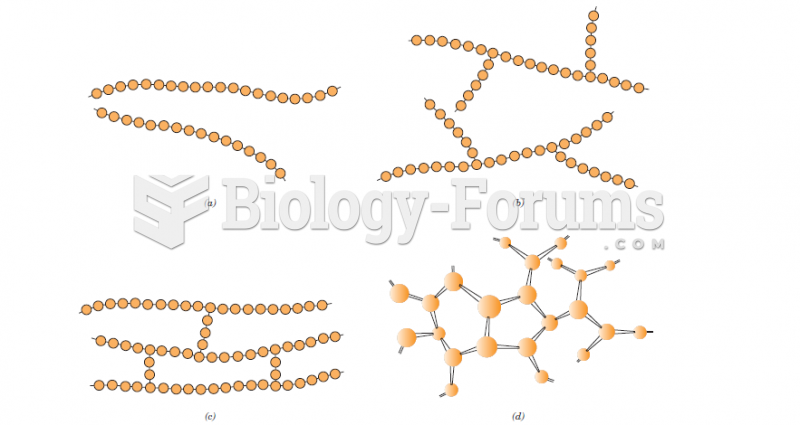|
|
|
Anti-aging claims should not ever be believed. There is no supplement, medication, or any other substance that has been proven to slow or stop the aging process.
The modern decimal position system was the invention of the Hindus (around 800 AD), involving the placing of numerals to indicate their value (units, tens, hundreds, and so on).
The cure for trichomoniasis is easy as long as the patient does not drink alcoholic beverages for 24 hours. Just a single dose of medication is needed to rid the body of the disease. However, without proper precautions, an individual may contract the disease repeatedly. In fact, most people develop trichomoniasis again within three months of their last treatment.
Warfarin was developed as a consequence of the study of a strange bleeding disorder that suddenly occurred in cattle on the northern prairies of the United States in the early 1900s.
Cancer has been around as long as humankind, but only in the second half of the twentieth century did the number of cancer cases explode.
 Symbolic language may have helped reinforce exclusive sexual relationships within social groups in l
Symbolic language may have helped reinforce exclusive sexual relationships within social groups in l
 Estimated age-related changes in semantic and episodic memory abilities. Semantic memory abilities ...
Estimated age-related changes in semantic and episodic memory abilities. Semantic memory abilities ...





